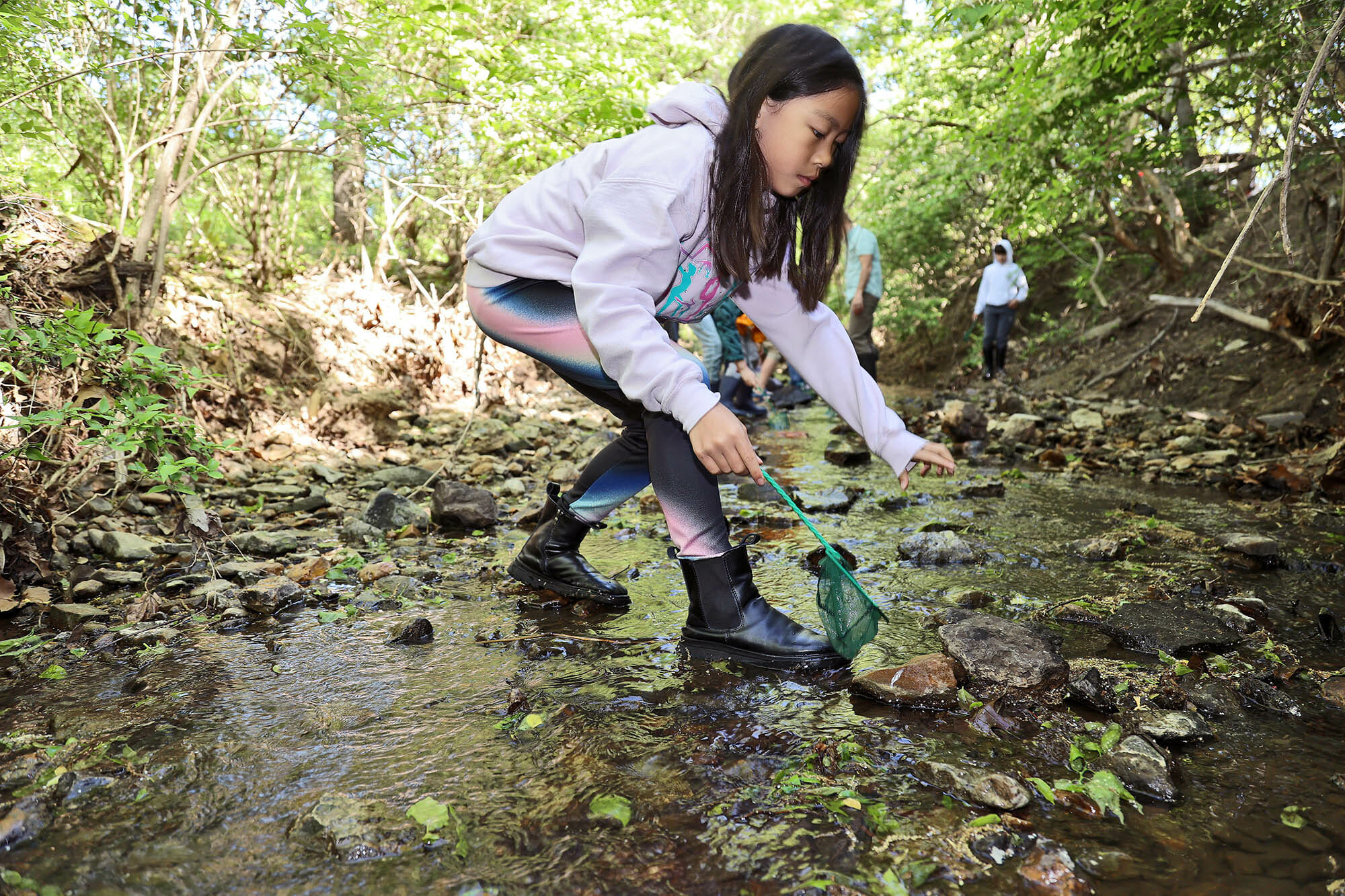By Laura Pupillo, Lower School Science Teacher
Fourth-grade students embarked on their annual stream team experience here on campus this week. Each year, students set out to explore the macroinvertebrates that live in our creek. These special macroinvertebrates are indicator species when it comes to water quality. Their presence and or absence can help citizen scientists determine the water quality at any given time. Checking the status of our creek annually can help us determine if there are any major changes in our water quality.
In preparation for this experience, we explored MSD’s enviroscape table in which students can see how watersheds work and the differences between point source and nonpoint source pollution. Through the model, students explored how even the smallest pollution in your yard, such as pet waste or a plastic bag that has blown away, can end up in a stream. All streams are connected and the trash you see in one creek doesn’t just stay there. It can easily travel to larger bodies of water or be ingested by an animal. In addition to our experience with the enviroscape model, we were introduced to macroinvertebrate species during our spring trip last year to Litzsinger Road Ecology Center and then again during our pond aquatic study on our recent overnight visit to Shaw Nature Reserve.
These ongoing experiences help students continue to build their understanding of water quality and the importance of taking care of the watersheds we are all part of. Returning to the stream was such a great way to connect all of our learning this year and the chilly weather didn’t hold us back. Using nets, our students got a close peak at dragonfly larvae, aquatic sow bugs, aquatic beetles, crane flies, scuds, aquatic worms, snail eggs, and even a mother crayfish carrying her eggs on her abdomen. These species all range from somewhat pollution tolerant to pollution tolerant and represent what we have found in years past. This data also coincides with what you would find in most urban creeks.
Well done, student scientists!
















